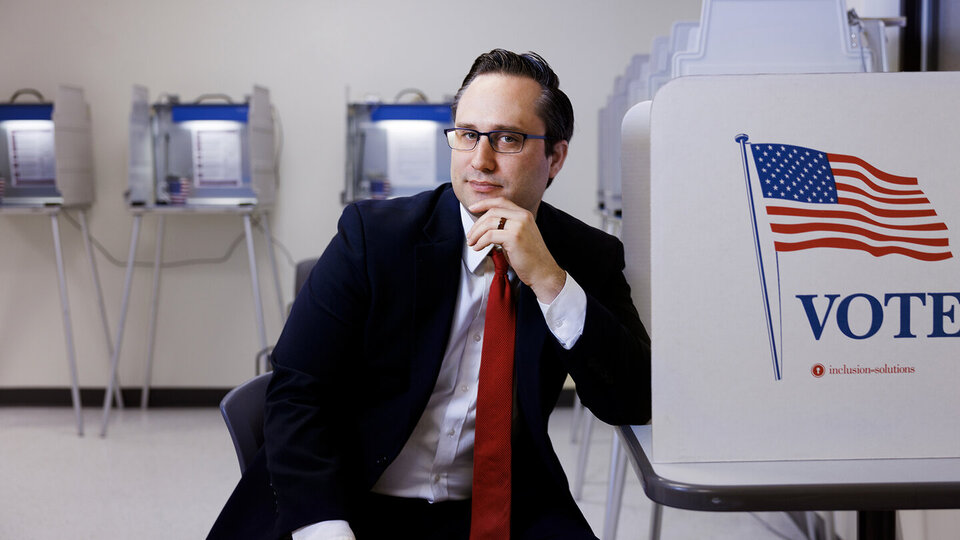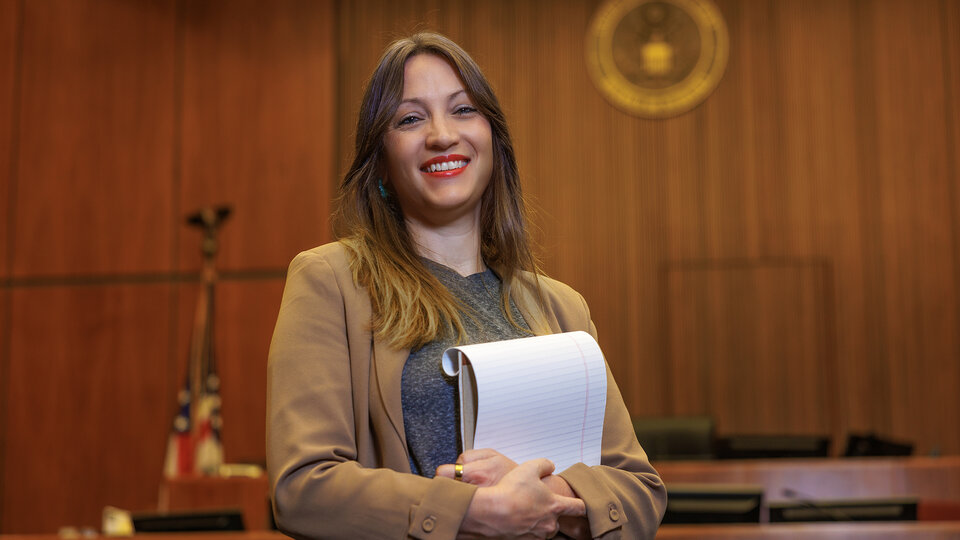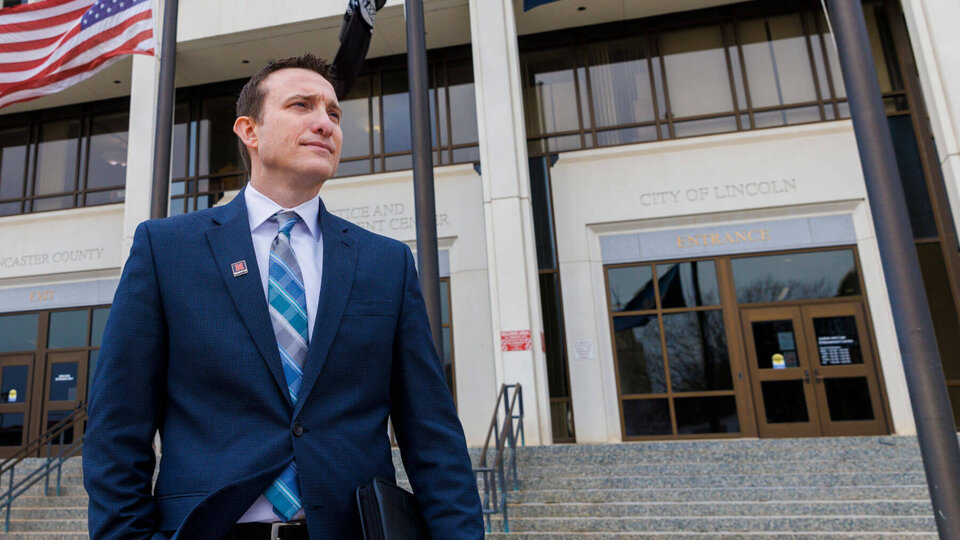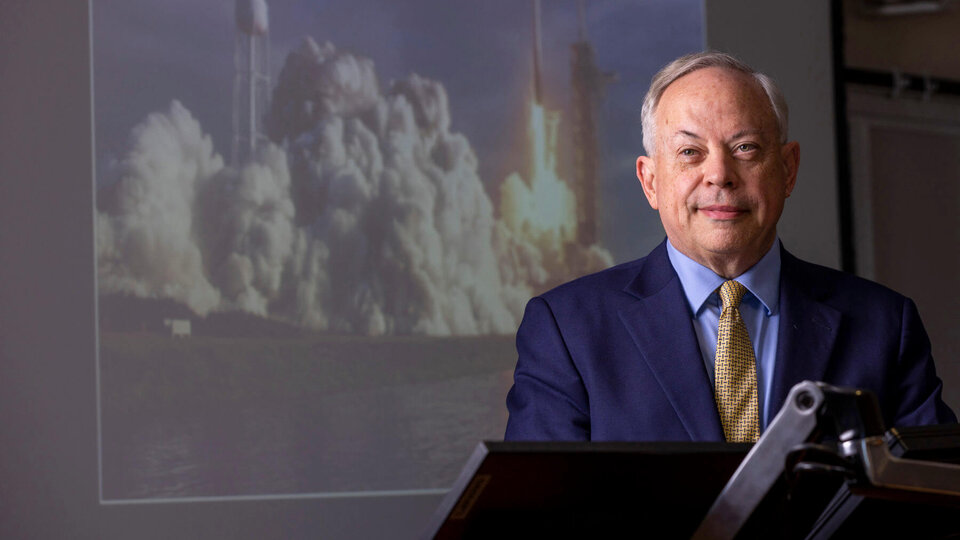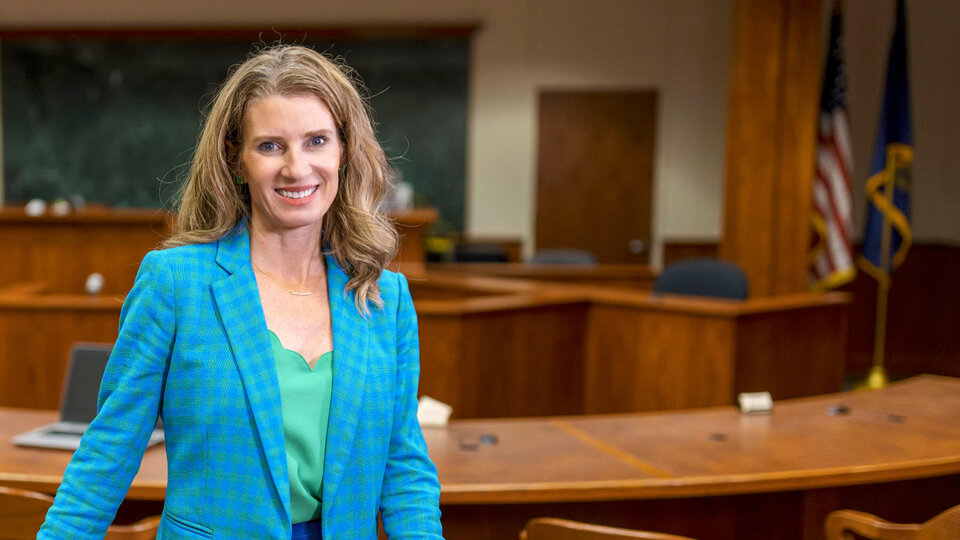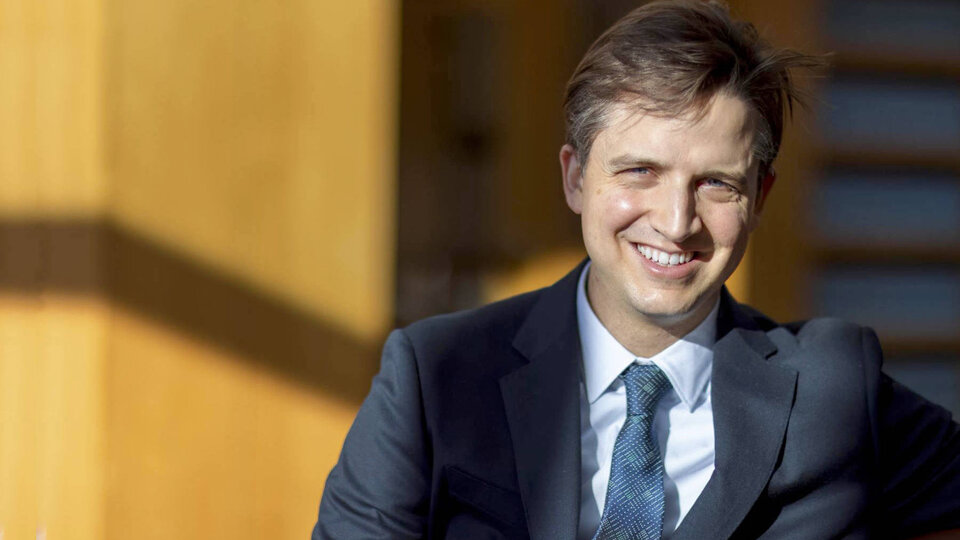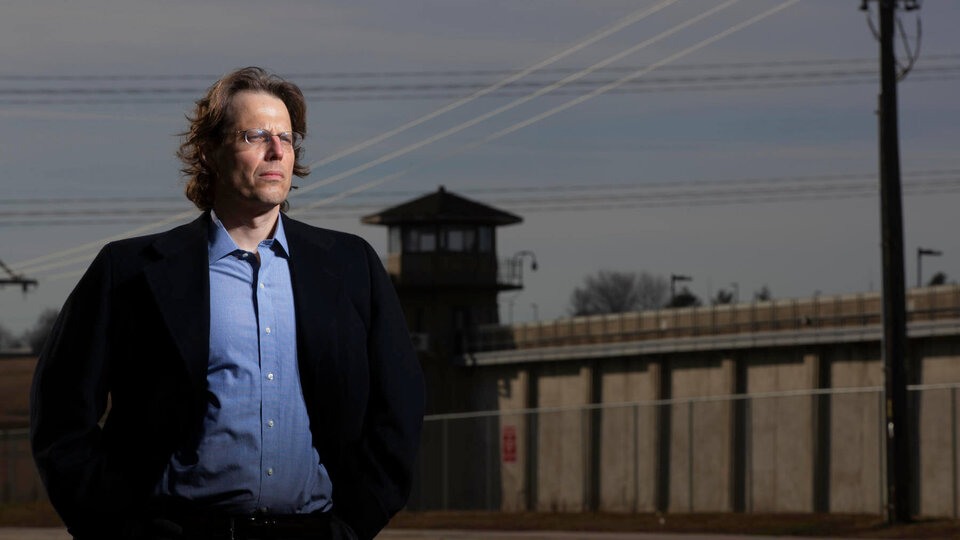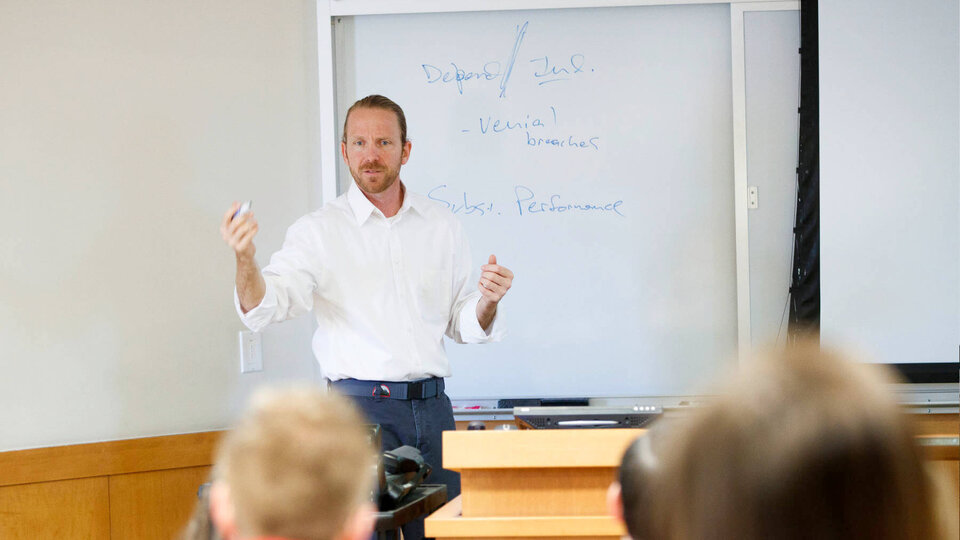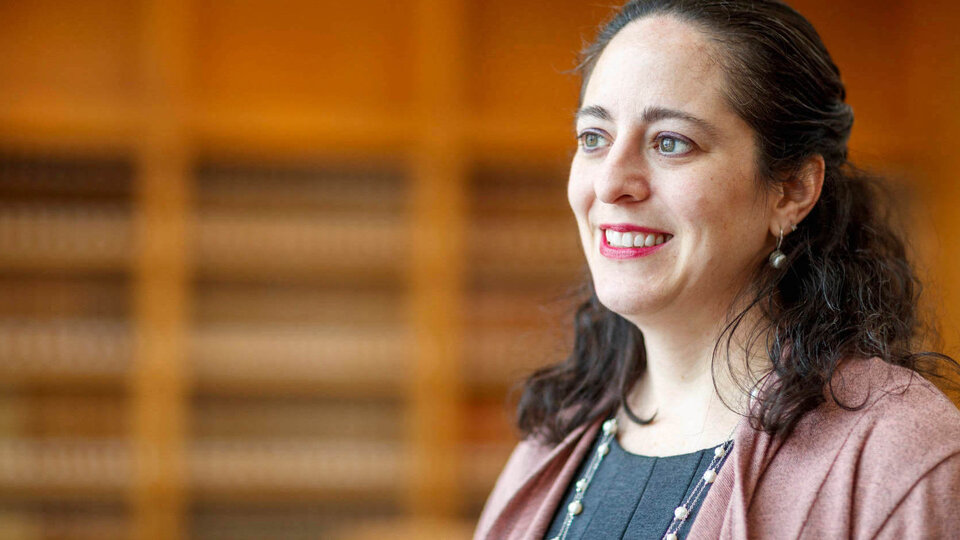Nebraska Law faculty are problem solvers actively engaged in advancing justice across Nebraska and the world. They are leaders who help confront and solve vital societal problems through research, scholarship and specialized programs. Their work helps us all work toward a more just world.
Professionally Active
Zeide is a regular commenter and presenter at the Privacy Law Scholars Conference and served on the executive committee of the AALS Section on Defamation and Privacy.
Technology and Policy Expertise
Prior to joining Nebraska Law, Zeide was a PULSE Fellow in Artificial Intelligence, Law and Policy at UCLA’s School of Law, an Associate Research Fellow at Princeton University’s Center for Information Technology Policy, a Visiting Fellow at Yale School of Law’s Information Society Project, and a Microsoft Research Fellow at New York University’s Information Law Institute.
Exploring Privacy Challenges
Professor Zeide’s recent publications focus on the pedagogical and privacy implications of online proctoring and constant school surveillance, the challenges posed by the adoption of artificial intelligence in learning, admissions, and hiring systems, and the shortcomings of current student and child privacy regulation. Her work has been published in the Notre Dame Journal of Emerging Technologies, University of Missouri Kansas City Law Review, George Washington Law Review, and The Cambridge Handbook of Generative AI and Law.
Leading Through Interdisciplinary Research
As part of the University of Nebraska–Lincoln’s Law-Psychology program, Professor Hoetger approaches her research with both legal reasoning and rigorous psychological methods.
Fourth Amendment Expertise
Prior to teaching, Professor Hoetger worked as a clerk for the Eighth Circuit Court of Appeals and as a public defender, where she encountered cases directly affected by the Fourth Amendment and improper search and seizure procedures.
Research-Informed Teaching
Professor Hoetger teaches Criminal Law, Criminal Procedure: Investigations, Capital Punishment and Mental Health Law. She’s previously taught Advanced Criminal Procedure: Fourth Amendment, Technology and Privacy, Evidence and Forensic Psychology.
Democracy Without Trust
Professor Johnson and the Nebraska Law Review led a 2024 symposium examining the role institutions have played in supporting a stable democracy, how institutions have lost the trust of large parts of the public, and if there are solutions to rebuilding trust.
Research Informing Teaching
In addition to teaching Civil Procedure, Professor Johnson teaches Administrative Law, Legislation and Regulation, and Election Law, which explore how institutions work in the government system, administrative state, and elections.
A Leader in the Field
Nationally recognized publications including Washington University Law Review, Wake Forest Law Review, the University of Pennsylvania Journal of International Law, and Boston University Law Review have published Professor Johnson's work. He has also contributed essays to widely read legal forums including the Harvard Law Review Blog and the Election Law Blog.
Professor Johnson has also testified in front of the Nebraska State Legislature and consulted with national election law organizations including Keep Our Republic and Protect Democracy.
Using Existing Structure with New Ideas
While most research on AI and the law focuses on how law should respond to AI, Professor Weitzel takes the opposite approach, focusing on how AI development can benefit from legal theory.
An Authority in the Industry
Professor Weitzel’s expertise is sought after by local and national organizations and media, including Bloomberg and Reuters.
International Corporate Experience
Prior to joining the legal academy, Professor Weitzel worked in Silicon Valley and the Middle East conducting international transactions on six continents. His most notable deal was the initial public offering of the Saudi Arabian Oil Company, the largest initial public offering to date.
Sought after Expertise
Professor Jefferis has been solicited as an amicus curiae for cases involving prison law and prisoners’ rights in courts around the country, including the United States Courts of Appeals for the Fifth, Eighth, Tenth and Eleventh Circuits.
Using the Past to Inform the Future
The Andrew W. Mellon Foundation awarded an interdisciplinary team of researchers, including Professor Jefferis, a $1 million grant to study how marginalized groups in American history use the law to contest and advance their rights.
Recognized as an Advocate
Professor Jefferis was part of a team recognized with the 2023 Clinical Legal Education Association’s Award for Excellence in a Public Interest Case or Project. Her team successfully advocated for the rights of a federally incarcerated individual seeking adequate medical care.
Changing Lives
In 2022, Professor Sullivan was honored with the Association of American Law Schools’ Access to Justice Award for his dedication to pro bono and public interest work – specifically for his timely and transformational work with the Tenant Assistance Project.
A Nationwide Leader in Housing Justice
The White House and U.S. Department of Justice recognized the work of the Tenant Assistance Project during a 2022 webinar hosted by U.S. Attorney General Merrick Garland and other top officials.
Shaping Policy Across Nebraska
Professor Sullivan examined eviction proceedings in Lancaster County from late 2019 to late 2021, working to better understand the causes behind eviction proceedings. His work has provided invaluable data to lawmakers across the state who seek to improve landlord-tenant laws in Nebraska.
Leading Research
Professor Beard is recognized for his research on public international law and national security law, space law, cyber capabilities, arms control, the law of armed conflict and the international legal implications of modern military technologies.
Deep Legal Expertise
Professor Beard has extensive experience in national and international security legal matters. During his time at the Department of Defense, he was responsible for legal matters related to arms control agreements, defense cooperation and basing agreements in the Middle East region, as well as programs assisting states of the former Soviet Union in the dismantlement of weapons of mass destruction (WMDs) and other nonproliferation activities.
A Leader in the Field
Professor Beard is known internationally for his knowledge of space and international law. He is chairman of the Committee on the Use of Force of the American Branch of the International Law Association, and also serves as one of the U.S. representatives on the London-based International Law Association’s Committee on the Use of Force. Additionally, he is a member of the International Institute of Space Law. His work has appeared in the American Journal of International Law, the Georgetown, Vanderbilt, and University of Pennsylvania international law journals, and other law reviews and publications.
Creating Connections
Through her work as the Director of Legal Training for CCFL, Professor Paxton recognized that the traditional law school experience wasn’t providing students with the training and support they needed to be effective in representing child clients. The unique partnership between CCFL and Nebraska Law allows students to learn from experts in trauma and child development, substance abuse, domestic violence, complex family dynamics and the Indian Child Welfare Act.
Building a Better Future
By educating the next generation of attorneys in all aspects of the child welfare system, Paxton is building a better future for both juveniles in need of legal assistance and lawyers looking to make an impact.
Strengthening Nebraska
Nebraska needs attorneys – especially those that can serve in juvenile cases. Rural areas need them the most, and currently 12 of Nebraska’s 93 counties have none. Paxton’s programs for law students and practicing attorneys will increase the availability and quality of attorneys interested in representing children and families in juvenile court.
The Intersection of Law & Technology
Professor Langvardt is a faculty fellow at the Nebraska Governance and Technology Center (NGTC). The NGTC brings together an interdisciplinary team of faculty, students and researchers to address the modern digital landscape.
Recognized Across the Country
The nation looks to leaders like Professor Langvardt on the evolving concept of free speech. His most recent work has been featured in esteemed publications across the United States, including the Georgetown Law Review, the Fordham Law Review and the George Mason Law Review.
Advancing Education at Nebraska
Aside from his scholarly pursuits, Professor Langvardt is also a respected educator within the University of Nebraska community. He teaches courses on Constitutional Law at Nebraska Law, as well as undergraduate and graduate courses at the University of Nebraska–Lincoln College of Business.
Eliminating Secrecy
Professor Berger argues that states should stop concealing the details of their execution protocols. Greater transparency is crucial so that lawmakers, the public, and inmates themselves better understand execution procedures and their risks.
Eighth Amendment Rights
The Eighth Amendment forbids the use of “cruel and unusual punishments.” Some state lethal injection procedures use drugs that inflict excruciating pain and then conceal that pain by paralyzing the inmate. Because of these paralytics, witnesses, including state officials, cannot see the inmate’s suffering.
Extensive Litigation And Legal Expertise
Before becoming a law professor, Professor Berger clerked for the Honorable Merrick B. Garland on the United States Court of Appeals for the District of Columbia Circuit and practiced in Jenner & Block’s Washington, D.C., office, where he worked on a range of litigation matters before numerous courts, including the United States Supreme Court. In addition to his work on lethal injection, Professor Berger also studies under-theorized factors that help shape judicial opinions in constitutional cases.
Navigating the Modern Rural World
Professor Shoemaker is the co-founder of the Rural Reconciliation Project, an interdisciplinary initiative aimed at the truthful and critical assessment of rural America’s past, present and future.
The Intersection of Race & Land Consolidation
Building on her prior work on systems of Indigenous land tenure and land governance, Professor Shoemaker examines demographic and other shifts in the modern agricultural landscape and the potential impacts of encouraging more active, local ownership of agricultural land, including by more diverse new farmers.
An Advocate for All
Professor Shoemaker has aligned herself as an advocate for all. She has served as the Fulbright Canada Research Chair in Aboriginal Legal and Resource Rights and received a Skadden Fellowship to work for the Farmer’s Legal Action Group where she focused on access and equity issues for BIPOC farmers and ranchers. Her work is vast but focuses on public-interest issues affecting farmers and the rural communities in which they live.
An Authority in the Industry
Professor Schutz is a frequent author on water-law issues and is one of the state’s leading experts on water and agricultural issues, as well as local government and Nebraska constitutional law.
Active and Involved
As a member of the American Agricultural Law Association and the former chair of the Association of American Law Schools Section on Agricultural Law, Professor Schutz has solidified himself as an expert not only in the state, but the country.
Experienced in the Field
Professor Schutz is a faculty fellow for the Robert B. Daugherty Water for Food Global Institute, and sits on the board of directors of the Lower Platte South Natural Resources district. He has also served on the board of the American Agricultural Law Association.
Research Informing Teaching and Practice
Professor Blankley’s research lies at the intersection of alternative dispute resolution and ethics, and informs both her teaching and work as a third-party neutral. In return, her experiences in the classroom and as a neutral guide her research. This interplay has allowed Blankley to develop a robust career that is not only rewarding, but also focused on practical solutions.
A Leader in Alternative Dispute Resolution
Professor Blankley is a leader among ADR professionals at the national, state and local levels. She is a member of the Council for the ABA Section of Dispute Resolution, serves on the Nebraska Office of Dispute Resolution Council and is a Board Member for The Mediation Center.
Experience Across Dispute Resolution
Professor Blankley mediates a wide variety of disputes, including civil, family, restorative justice, collective bargaining and workplace disputes. In addition, she arbitrates consumer and employment matters.


